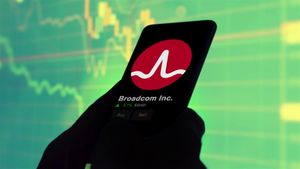
So far, 2024 has been a very difficult year for solar power investors. The S&P MAC Global Solar Energy Index has declined by more than 18% year-to-date while the Invesco Solar ETF has fallen by 19% over the same period.
By contrast the S&P Global Clean Energy Index is down by only 6.6% so far this year.
Poor performance has led to outflows. In a September report, Bernstein Research estimated that solar power companies now account for only 1% of total broad renewable energy market capitalization.
Ironically, this bearish cycle has coincided with a sharp increase in renewable energy demand from the tech sector.
AI demand skyrockets
The alternative energy industry is undergoing a massive development cycle driven by the proliferation of data centers needed to meet the insatiable demand of artificial intelligence. With limited capacity available from revived nuclear plants and long-gestation periods for new installations, solar power has been a focus of new development projects.
According to industry data provider Wood McKenzie, solar accounted for 67% of all new electricity-generating capacity added to the US grid in the first half of this year.
In a research report released on Monday, UBS analysts were bullish on demand growth in the near-term. “We expect solar procurement to be the predominant way that the large tech companies continue to meet their corporate sustainability targets given a lack of widely available alternatives.”
Solar already accounted for nearly 7% of total US electrical generation in the first half of 2024 according to data released by the nonprofit SUN DAY Campaign, an increase of more than 25% over the same period last year.
As solar power production increases so will billing. Bloomberg Intelligence estimates that total revenues for publicly listed companies may approach $40 billion by 2026.
Residential providers find the floor
During the second quarter new residential installations were 10% lower than in the prior quarter and 37% below the pace during the same period in 2023, according to Wood McKenzie data. California accounted for much of this decline, in large part due to a state-wide transition to net-billing.
Despite soft demand, a recent pickup in activity in the residential segment may be signaling that the worst is over.
In recent months, bank analysts focused on the residential solar industry have reported that the largest firms, including Sunrun RUN , and Sunnova NOVA , are being joined by a slew of new entrants to the market. This pickup in activity is due in part to a combination of declining interest rates and the solar Investment Tax Credit that was established as part of the Inflation Reduction Act of 2022.
Political favorite
Solar producers have been among the biggest winners in clean energy legislation adopted under the Biden administration.
Tax credits available to corporate producers can equal up to 30% of operating costs.
Additional incentives are available for projects using US manufactured components and those operating in specified economic development zones.
This preferential tax treatment is reserved for commercial operators. To take advantage of the available credits residential solar operators are increasingly retaining ownership of installed equipment and leasing them to end consumers.
Despite deep political divisions over US energy policy, solar power appears to have support on both sides of the aisle. Both red states, Texas and Florida were ranked first and second respectively for new installations during the first half of the year.
Read more: Microsoft’s deal for Three Mile Island energy shows investors just how voracious AI can be





